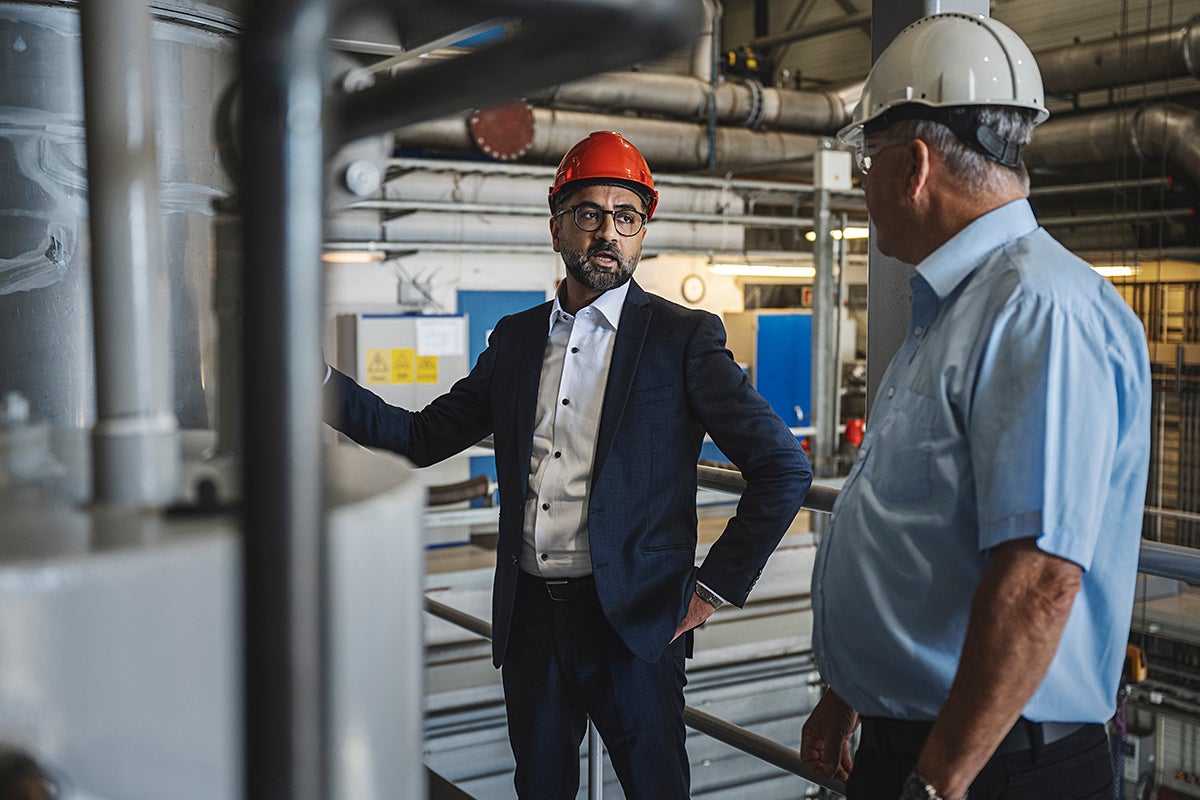Scrubbers on ships gained popularity as a global sulphur cap compliance solution and will remain a key solution for today’s maritime sustainability concerns, writes Kashif Javaid, sales director at Wärtsilä Exhaust Treatment.

Ship owners who already invested in scrubbers for IMO 2020 compliance are enjoying a competitive advantage.
Reports throughout 2022 showed that ships fitted with scrubbers in many cases earned twice as much as those without. The financial benefits are likely to persist, particularly with ongoing macroeconomic volatility and the relatively stable spread between the price of high and low-sulphur fuels.
Even more exciting is that scrubbers are now creating fresh commercial and sustainability upside potential for the future.
The implementation of a new Sulphur Emissions Control Area (SECA) in the Mediterranean Sea again strengthens the business case for installing scrubbers. We can also expect the local and regional regulatory environment for sulphur (SOx) to tighten in other key regions, as more nations wake up to the harmful nature of SOx and seek to establish more stringent targets than the IMO’s 0.5% baseline.
See Also:
A platform for the future
However, beyond tackling just SOx, scrubbers have now become a platform from which multiple technologies are working together in the stack and throughout the exhaust chain.
How well do you really know your competitors?
Access the most comprehensive Company Profiles on the market, powered by GlobalData. Save hours of research. Gain competitive edge.

Thank you!
Your download email will arrive shortly
Not ready to buy yet? Download a free sample
We are confident about the unique quality of our Company Profiles. However, we want you to make the most beneficial decision for your business, so we offer a free sample that you can download by submitting the below form
By GlobalDataFor example, in the case of NOx, vessels can be upgraded with selective catalytic reduction systems or exhaust gas recirculation systems to ensure compliance with MARPOL Tier III requirements.
Scrubbers can greatly reduce particulate matter to 2.5 levels below even standard land-based requirements. The multi-use platform that scrubbers provide can now also include onboard carbon capture and storage technology. This potential solution for the ongoing uncertainty surrounding future fuels has generated a lot of industry interest, for good reason.
As the requirement to reduce shipping’s environmental impact intensifies, and with regulatory targets in place for 2030 and 2050, there is much debate about new technologies and new ships needed to ensure a more sustainable future for the shipping industry.
“Scrubbers can become a futureproofing solution in the midst of tightening decarbonisation goals.”
Many older ships will not be able to be retrofitted to burn future fuels, and even if they can, not all routes will have these fuels available in this decade or even the next.
It is critical that these situations are dealt with properly on the path to decarbonisation. It will be too expensive to recycle and replace the current merchant fleet wholesale, and many vessels built 10 years ago will have to last through to 2035 or possibly beyond, dealing with considerable regulatory change in the interim period.
Instead of replacing these ships, we need to ensure the adoption of proven technology that makes it possible for them to remain part of this unprecedented transformation.
As a mature technology with a strong return on investment, scrubbers – with the possibility to add a carbon capture and storage unit – enable owners to futureproof their existing assets. In addition to their fast return on investment, scrubbers can become a futureproofing solution in the midst of tightening decarbonisation goals.
Delivery solutions
Scrubber technology is mature and globally available. However, there are challenges for shipowners looking to reap the benefits they offer.
The geopolitical situation with the war between Ukraine and Russia has and continues to create uncertainties for the entire industry. While this positively impacts fuel spread and scrubber economics, it is a double-edged sword that is also prompting more caution in investment decisions.
There is also the underlying issue of space for retrofits from an engineering, execution and installation point of view.
However, many owners and charterers are already aware of the challenges and want to talk through them and work on a solution together. They want to prepare their fleets and are actively making enquiries and investigating scrubber solutions.
Some owners who contracted vessels with LNG fuel are even reconsidering their decisions and have changed orders to conventional engines with heavy fuel oil and scrubbers.
Looking ahead
As a result of the growing positive sentiment surrounding scrubbers, the retrofit market is expected to grow in the coming months.
Ship owners’ confidence in scrubbers as a technology platform for compliance with IMO goals and wider decarbonisation measures has increased, and it is becoming increasingly understood that they need to act quickly if they are to meet the IMO 2030 and 2050 strategy goals.
While alternative fuels remain far from widespread adoption, scrubbers have an important role to play in meeting compliance and improving the environmental impact of shipping.
Embracing proven technology that can bridge the gap between current and future environmental regulations will enable the industry to move forward optimistically. With advanced scrubber solutions and by choosing the right partners, owners can be confident they will achieve compliance and remain competitive.








